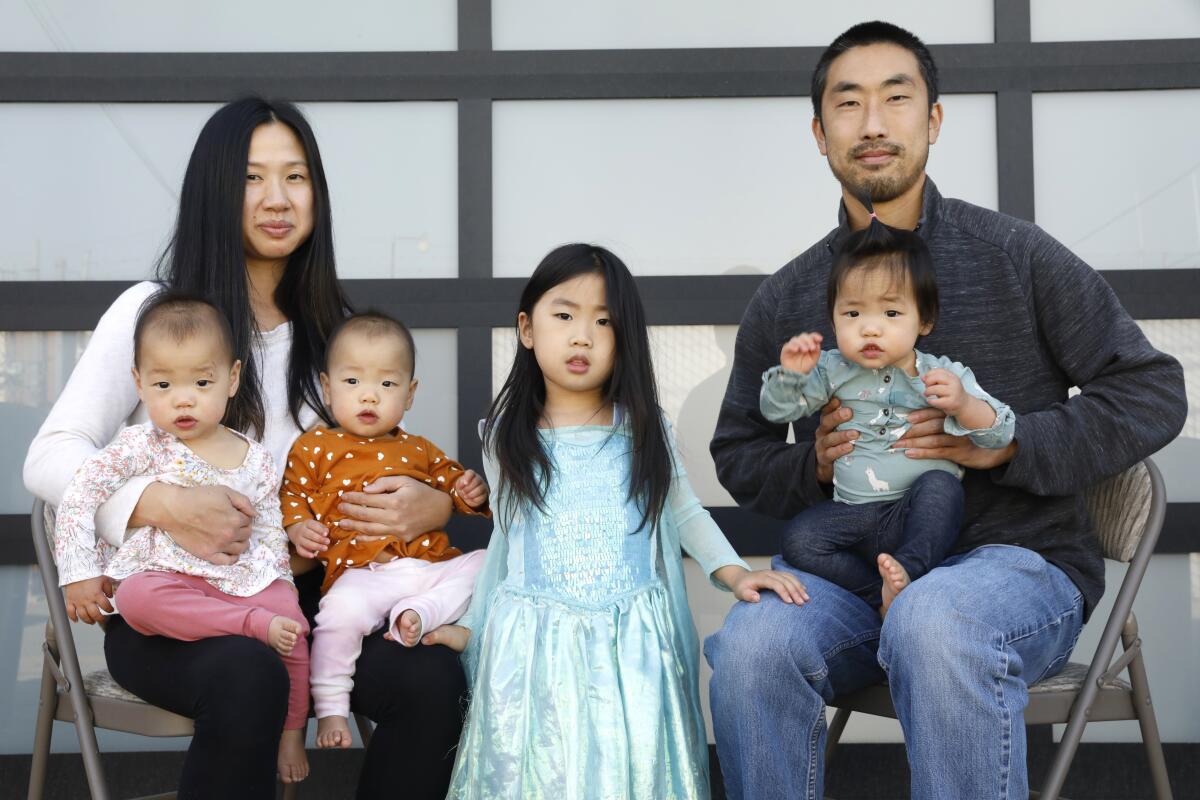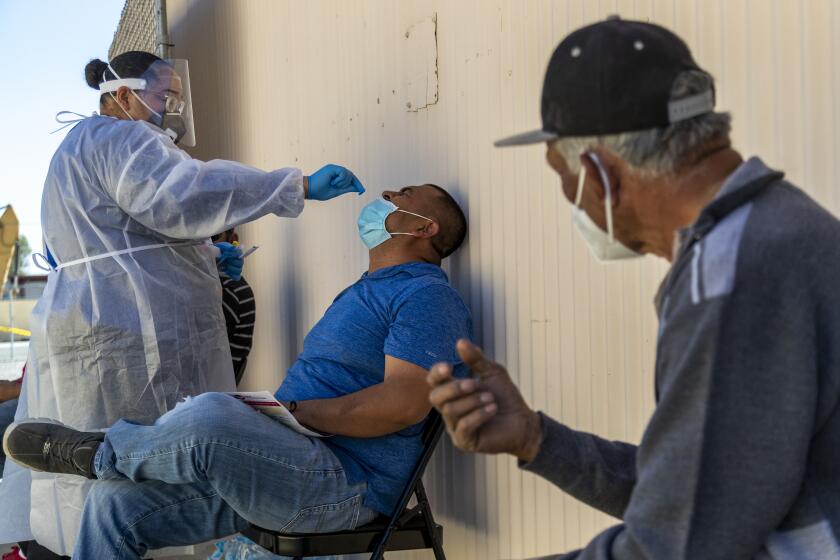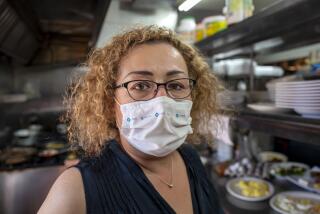Real or fake? Forged documents add another headache to COVID-19 vaccine rollout

When Christine Yano got in line at the COVID-19 vaccination site at the Forum earlier this month, she came armed with proof of her eligibility.
Though only 33 years old, Yano qualified because she is the mother of 15-month-old triplets with chronic lung disease.
She showed staffers a letter from the Department of Developmental Services, and another from one of the agency’s regional centers. In her arms, she held a stack of medical records that offered more proof, including a prescription for her children’s oxygen.
But workers at the site denied her the shot. The letters, they said, could be fake.
“They basically said, ‘Try somewhere else, we’re not taking you,’” Yano said.
As California prepares to open up eligibility to millions of people with disabilities or underlying health conditions, confusion over paperwork could become a big problem at the front of the vaccine line.
Eligibility requires proof, but state and local officials have yet to establish what documents will be needed, or a straightforward way to sort phony documents from real ones.
At vaccine sites staffers have routinely encountered people using forged documents to try to get shots.
L.A. County Public Health Director Barbara Ferrer said earlier this month that “hundreds” who are not eligible try to get inoculations every day.
“Some of those folks have gone to great lengths to, in fact, establish eligibility when they’re taking appointments from people” who qualify first, Ferrer said.
California’s vaccine rollout is missing millions who work in risky conditions, and it’s unclear when those with less visible jobs can get inoculated.
For most people, verifying eligibility hasn’t been a problem. Those older than 65 show a California identification or driver’s license. Healthcare workers show a badge or other employee identification.
But it gets more complicated for families like the Yanos who are vaccine eligible as healthcare workers, under the category of caregiver.
For verification, they need a letter from the developmental services agency and another from one of its regional centers. But problems emerged after copies of the letters began circulating among those who weren’t vaccine eligible.
Next month, up to 6 million more Californians with disabilities and underlying health conditions will qualify for inoculations. The state has yet to determine what type of proof they will need. It could include a letter from a physician on proper letterhead, a statement from a federal or state agency, or some other form.
Verification could require a dizzying range of paperwork because the soon-to-be eligible categories include an array of underlying conditions, including cancer, chronic kidney disease, Down syndrome and pregnancy, among others.
“It’s clear to me that the Department of Public Health and the Surgeon General are really worried about fraud,” said Andy Imparato, executive director of Disability Rights California, a nonprofit advocacy group for people with disabilities. He hopes past difficulties do not prompt an overly cumbersome process going forward, especially for individuals who are less mobile or sick.
“If the system requires you to see a physician and get a detailed letter from a physician, there’s going to be a lot of people in California who are going to have a hard time doing that, even if there wasn’t a pandemic,” Imparato said.
Potential barriers could make it more difficult to access the system, advocates fear.
“Many people with disabilities, particularly those from underserved communities, do not have access to regular healthcare providers. We don’t want to create additional inequities,” Disability Voices United President Judy Mark said.
State officials, aware of growing concerns over verification, have taken up the issue at meetings of the public vaccine advisory committee and a task force that includes members of the departments of Aging, Developmental Services and Health and Human Services. Health officials from across the state, meanwhile, are awaiting guidance.
“It’s really almost an impossible task to put this on every single county to figure out what types of verifications are appropriate,” Ferrer said.
Meeting the requirements for people like the Yanos who already are eligible for vaccinations became a problem when the county was hit by the apparent forgery scheme.
Several people had taken one of the letters of eligibility, copied it, and then distributed it to others, according to Ferrer. It’s not clear how many caregiver families were affected.
Similar accounts from family caregivers being thwarted by forgeries earlier this month have surfaced in Facebook groups and in media reports.
Yano and her husband, John, have struggled to keep up with the medical needs of their triplets — Riley, Peyton and Skylar. Born premature at 26 weeks, the babies were initially on oxygen 24 hours a day for a chronic lung disease. Their delicate condition faced a new threat when the pandemic struck. Because of their weak lungs, they were more vulnerable to the effects of the coronavirus, as well as the potentially deadly multi-inflammatory syndrome known as MIS-C that infects children exposed to the virus.
Christine didn’t anticipate any problems when she drove from her home in El Segundo to the Forum vaccination site. Her husband had been vaccinated four days previously at Dodger Stadium, and the county had accepted her request for an appointment.
But when she showed the staffers the same documentation John had used, they weren’t convinced. So she showed them more paperwork, but still they said they couldn’t determine whether the letters were authentic.
The next day, Christine tried again — and was rejected again. Staffers told her they were only vaccinating licensed healthcare workers that day.
On her third attempt, at Dodger Stadium, she was denied once more. But that time she appealed to a supervisor, who scrutinized her records and allowed her to get vaccinated.
Christine rolled up her sleeve, for herself and her family, and was given the shot.
“We have four children under 4. Knowing that we will be able to take care of them is definitely a relief,” she said.
More to Read
Sign up for Essential California
The most important California stories and recommendations in your inbox every morning.
You may occasionally receive promotional content from the Los Angeles Times.












